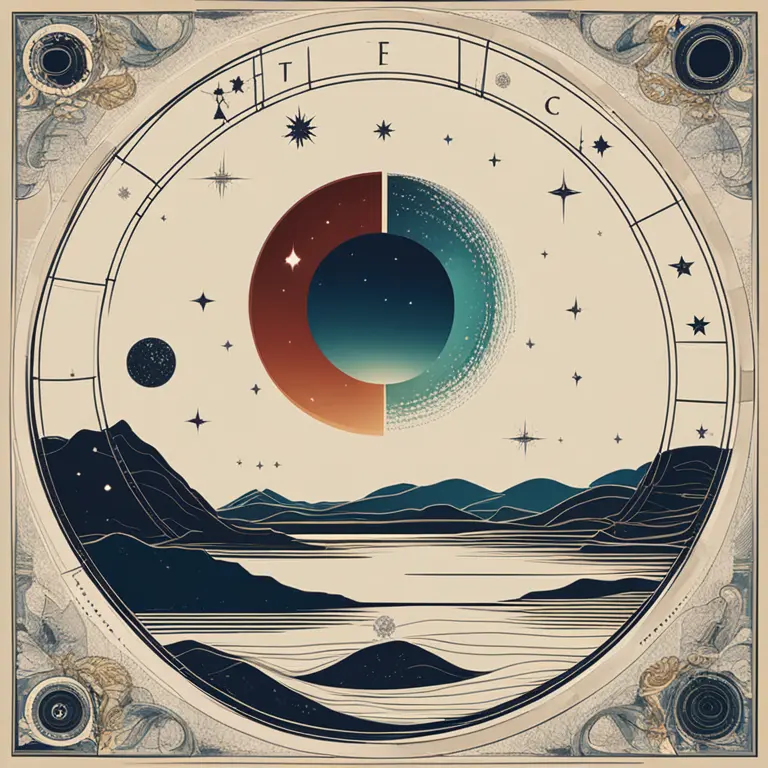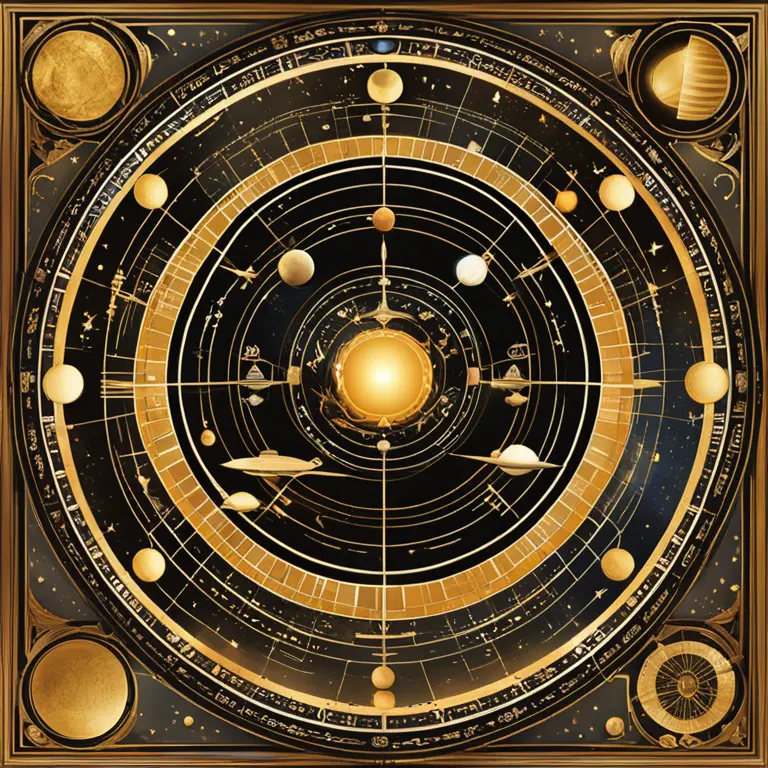
The Intricate Connection Between Astronomy and Astrology
An exploration of the historical and conceptual links between the scientific study of astronomy and the mystical world of astrology.
article by Priya Deshmukh
A Common Origin
Long before the emergence of modern science, humanity gazed up at the night sky in wonder, seeking meaning among the stars. Both astrology and astronomy share a common historical root: ancient civilizations interpreting celestial patterns. While astrology looks at how these cosmic bodies supposedly influence human lives and events, astronomy is the scientific study of celestial objects, space, and the physical universe as a whole. Over time, these two fields have diverged significantly, with astronomy taking a more empirical approach to understanding the cosmos.

The Astrological Heritage
The zodiac, planetary movements, and the position of stars once served a dual purpose: to guide astrologers in their predictions and astronomers in their research. Ancient astrologers meticulously recorded celestial events—which proved invaluable to later astronomers. Although astrology has since ventured into the mystical, its historical contribution to observational astronomy cannot be understated, serving as the foundation for astronomical progress that has followed the scientific method.

Astronomy's Empirical Evolution
Today's astronomy is driven by technology and rigor. With equipment like telescopes and space probes, along with advanced mathematical models, modern astronomers have a far more accurate and detailed understanding of the cosmos. This empirical evolution is characterized by testable theories and data-driven science, standing in stark contrast to the faith-based interpretations that typify astrology.

Astrology in Contemporary Times
Despite the scientific advancements of astronomy, astrology maintains a significant cultural presence. Horoscopes remain popular, reflecting a continued human desire to find patterns and meaning in life. Modern astrology often embraces psychology and spirituality, and while it is not grounded in empirical evidence, it fulfills a different need for meaning beyond the materialistic world that astronomy quantifies.
Divergent Paths Yet Intertwined
The divide between astrology and astronomy is significant. Astronomy focuses on understanding the universe through observation and science; astrology uses the same celestial map to derive personal and spiritual insight. Both, however, are interconnected through their use of the cosmos for different ends. It's this shared canvas of the night sky that forever relates the two disciplines, even as the methods and objectives remain profoundly separate.
Educational and Social Contributions
While astronomy contributes to our educational systems with scientifically verified knowledge, astrology offers cultural and social insights. This distinct contribution underlines an intellectual and communal relationship between the two fields. Astrology's focus on the human experience and the narrative components of our lives speaks to a different aspect of the human condition than the one addressed by astronomy.
Concluding Thoughts
Astrology and astronomy, once intertwined as one, now stand as separate entities, each with its value and contributions. While astronomy pushes us toward a greater understanding of the physical cosmos, astrology provides a platform for personal introspection and an enduring fascination with the stars. They may share a link in heritage, but their paths forward are as distinct as science and symbolism can be.
Published: 1/12/2024
Modified: 1/12/2024
More predictions
Come back here soon to learn more about yourself and your future


Deciphering The Symbolism Of Tarot Cards
A concise guide to the symbolism and interpretation of tarot cards for insight and divination.


The Essence of Zodiac Water Signs
Delve into the depths of the Zodiac's Water signs: Cancer, Scorpio, and Pisces, and their profound influence on personality, emotions, and relationships.


The Mystique of Zodiac Water Signs
Dive into the emotional depths of the Zodiac water signs – Cancer, Scorpio, and Pisces – and discover the profound insights they offer.